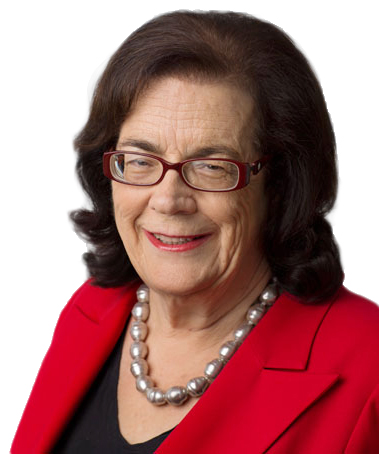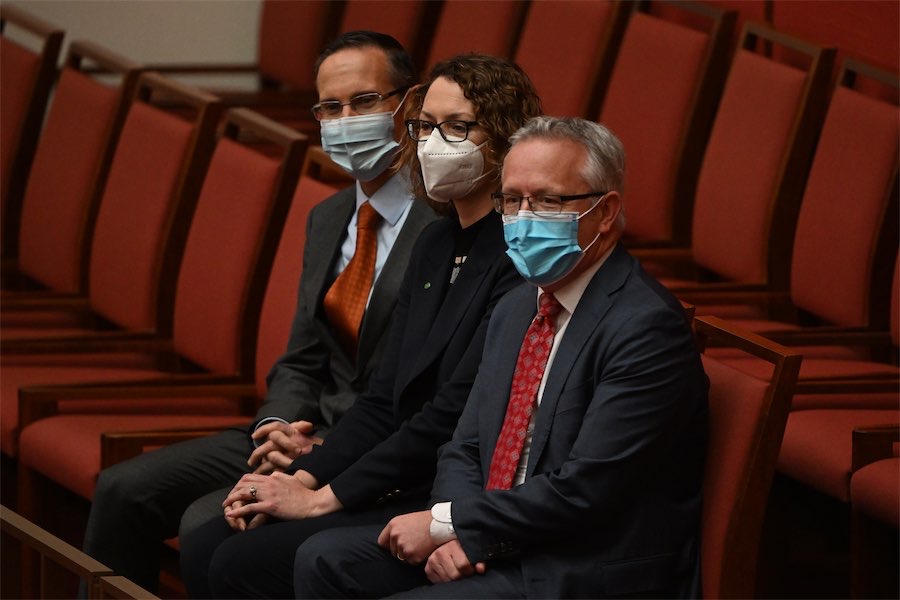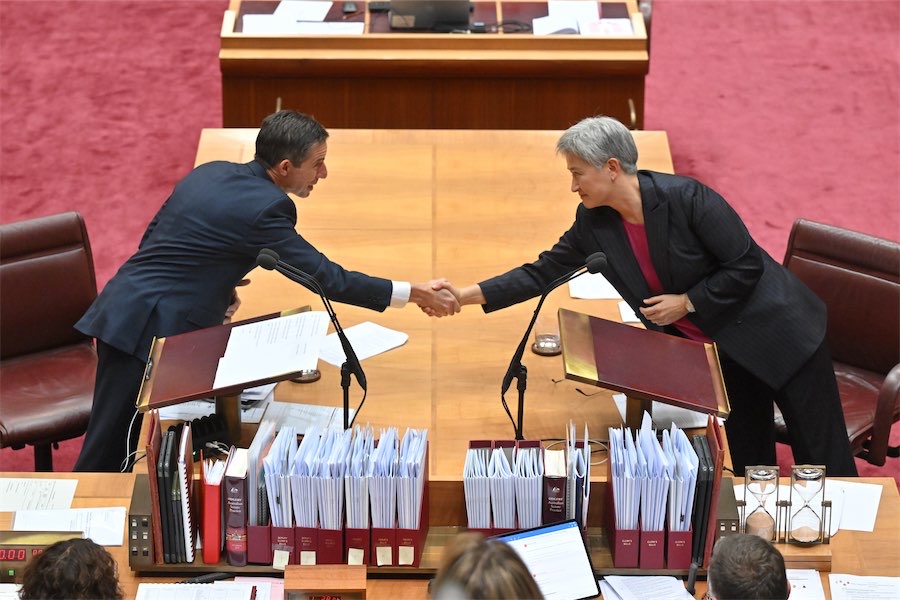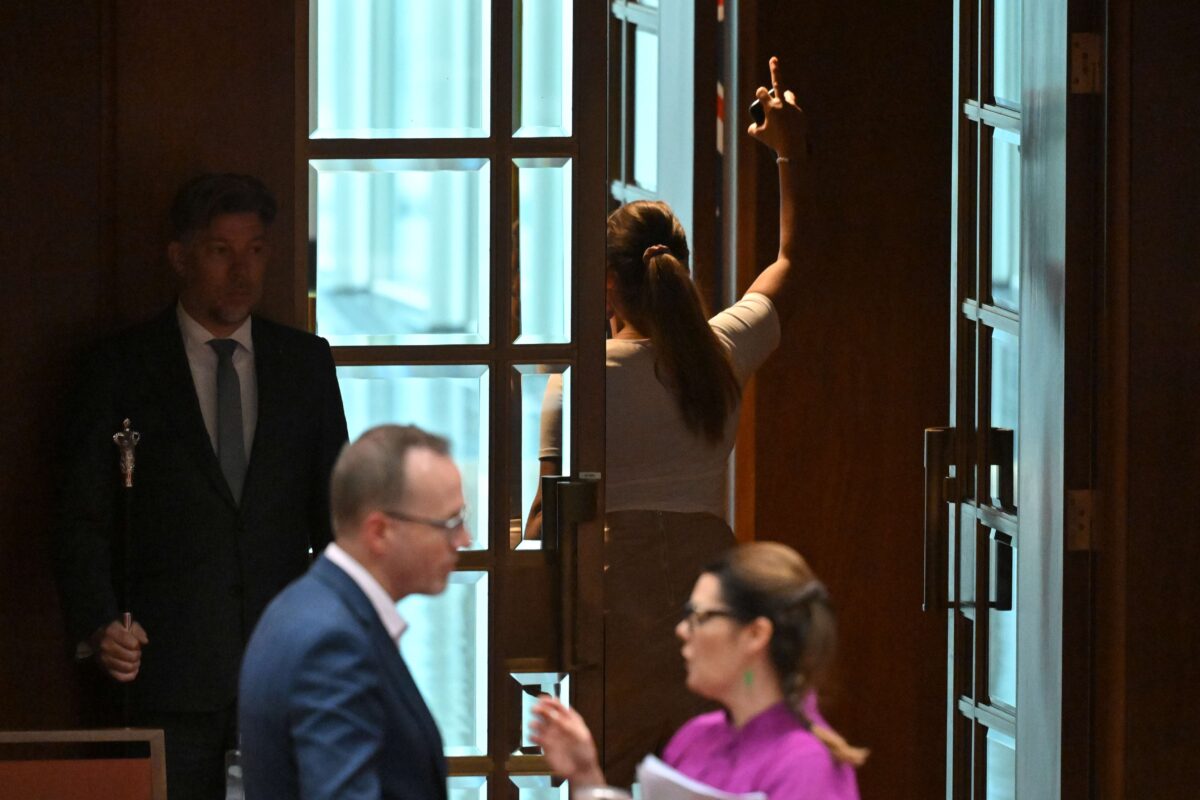“Virtual” participants and border restrictions will make for a bespoke parliamentary sitting, writes political columnist MICHELLE GRATTAN.
FEDERAL parliament is set to make history with its first “hybrid” sitting in the fortnight starting next week, with some members connecting virtually.

But border closures and state government rules are causing a nightmare for many of those planning to attend in person.
Unless there is a last minute political hitch, a substantial number of MPs will speak, ask questions or respond to questions remotely.
Technology challenges aside, they’ll have the easier time of it than quite a lot of their colleagues.
Victorians who want to be physically present are now in a fortnight’s quarantine, in Canberra or at their homes, unable to leave their residences.
Treasurer Josh Frydenberg and Health Minister Greg Hunt are locked up in the national capital, as are the Speaker, Tony Smith and the Senate President, Scott Ryan. (Hunt has even installed an Australian government background for virtual news conferences.)
Under Queensland government rules, MPs who go to Canberra from that state will have to self-isolate for a fortnight when they return home.
If the Queensland rules are still in force in early December, those attending the final sitting ending December 10 can forget any pre-Christmas sprees – they’ll be isolating until Christmas Day.
Victorians who want to attend all the rest of the year’s scheduled sittings will only be able to have a fortnight home between now and December 10, given the quarantine rules.
Among those Victorians choosing not to make the journey next week is Richard Marles, deputy leader of the opposition. He said on Monday: “It is a difficult decision but I will be staying in my community as Victorians face this second wave.”
Labor frontbencher Bill Shorten will also be missing from parliament house – he was on the ABC’s Insiders program in person on Sunday.
Tasmania is tightening its conditions for returning MPs, replacing an automatic exemption from quarantine with consideration on a case by case basis.
Ryan has flagged his concerns with the various restrictions imposed by indicating he will be making a statement to the senate about the issue when it resumes.
It would make sense for the government to consolidate the sittings after the October 6 budget, so the parliament could finish the year earlier, but there is no sign of that as yet.
Even in Canberra life will be tougher than usual for some of the parliamentarians. In a statement on Monday Smith and Ryan advised those from Sydney and Newcastle that while in the ACT they should “avoid visiting retail or hospitality venues,” which is bad news for the cash-strapped local eateries.
Moreover: “When attending Parliament House, parliamentarians and staff should avoid congregating in groups, and avoid face-to-face meetings with external visitors”.
Not that there will be many staff to congregate – the presiding officers say they should not go to Canberra “unless it is considered absolutely essential”. And external visitors will be as rare as hens’ teeth, under the presiding officers’ advice.
Scott Morrison has yet to tick off on MPs linking up virtually – Labor is keen – but it is hard to see him not agreeing.
This is formally done through Christian Porter, the leader of the House, who earlier expressed concerns about the technology and the application of parliamentary privilege.
Morrison has signalled general support for the sitting to have its virtual element. For the government not to embrace it would look out of touch at best and obstructionist at worst. Parliamentary committees have been operating remotely through the pandemic and for years before.
The government has the final say only in regard to the House of Representatives; the Senate, where the government is in a minority, is its own master.
This week rehearsals are underway for the virtual system, with MPs who won’t be in Canberra given trial runs. They will have to operate from their electorate offices, and use parliamentary equipment. Even the usual dress rules that apply to each chamber are expected to operate for the “virtuals”.
The pandemic produced a different atmosphere in the House of Representatives, with the macho aggression toned down, certainly initially. No doubt the hybrid parliament will have yet another distinctive vibe.
Michelle Grattan is a professorial fellow at the University of Canberra. This article was originally published on The Conversation.
Who can be trusted?
In a world of spin and confusion, there’s never been a more important time to support independent journalism in Canberra.
If you trust our work online and want to enforce the power of independent voices, I invite you to make a small contribution.
Every dollar of support is invested back into our journalism to help keep citynews.com.au strong and free.
Thank you,
Ian Meikle, editor




Leave a Reply